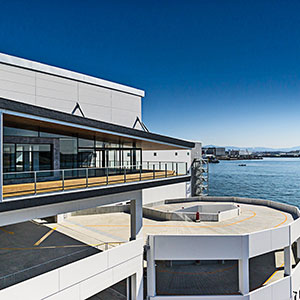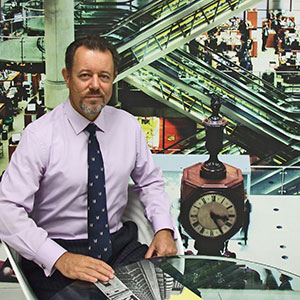- Adapting to differences between own and new culture is key
- Use a local team to develop long-term relationships
- Green concerns are driving auto industry in Japan
Nowadays it is rare to find someone who has spent his or her entire professional career in the same firm—and continues to speak of it with enthusiasm. Meet Adam Touhig. In October 2015, after nearly 30 years of service, he was appointed president of GKN Driveline Japan Ltd., a research, development and manufacturing firm offering automobile driveline systems and solutions.
“The company is like family to me”, he told BCCJ ACUMEN.
A native of the West Midlands, Touhig is in charge of the firm’s operations in South Korea and Japan, where it has bases in Aichi and Tochigi Prefectures and Tokyo, where Touhig works.
Headquartered in Worcestershire, the GKN Automotive Group has a global footprint across four product segments in 32 countries.
Touhig started out at GKN’s Birmingham operations. “I began on the shop floor crack-detecting metal”, he said. “From there, I worked in quality control, engineering, IT, finance and sales before ending up—28 years later—where I am today”.
According to Touhig, he owes a great deal of his professional training to the firm.
“My education as a technician, accountant and manager all came through GKN”, he said. “And if you’d told the 15-year-old me that I’d be sitting where I am now, in Tokyo, I would not have believed you”.
Touhig’s move to Asia in 1999 was due to accident as much as design.
“I was offered a secondment to Malaysia, which I gladly accepted. A week or so before my departure, I gave a presentation before a Japanese client. The then-president of GKN Japan Ltd. just happened to be there, and he asked me to join him in Japan. I did”.
Touhig was first posted to Japan between 2000 and 2006. He then spent periods working in Shanghai and Singapore, before returning to Japan in 2015.
“My transition from sales to country head for Japan and South Korea has been an interesting one”, he said. “Sales in this industry has many challenges: it is very cost orientated; it focuses on relationship-building; and, of course, there is a strong technology orientation as well.
“My new role as country manager is rather different: it involves quality, safety, health and finances. And it often revolves around a language—Japanese—that is not my mother tongue, even though I speak it”.
Life in Japan has always had a particular, if sometimes amusing, attraction for Touhig.
“As most expats have found, the first three months of your life in Japan feels like you’re in heaven”, he said. “For starters, you can hardly read anything: I remember ordering five different bowls of rice in a restaurant”.
On another occasion, Touhig tried to withdraw cash from an ATM but it did not accept bankcards from foreign accounts; it withheld his card.
“A salaryman standing next to me asked if I needed help”, he said. “He then gave me his business card and offered me ¥30,000. I returned his cash on a later date. That has been my view of Japan: a country where people are very friendly. Another thing I’ve noticed is that people are as interested in me as I am in them”.
As time passed, Touhig noticed some differences between Japanese and British culture. The trick to success, he said, has been to adapt to those differences while not losing his own—and the firm’s—identity. The same, he said, applies to his work in South Korea.
“People like the fact that I’m Adam from England. They are appreciative that I try to speak their language; that I’m straightforward and honest; and that I respect the local culture but remain true to my core values”.
Knowing the local culture and adapting to it while maintaining existing traits is how the firm has been able to crack the Asian market, he said.
GKN has also invested in developing long-term relationships with customers via a strong local team.
According to Touhig, increasing levels of environmental consciousness among clients is driving the industry in Japan. This has resulted in a greater desire for more efficient fuel usage, lower emissions, hybrid cars, and a greater number of electric vehicles. Customers, moreover, want cars that are fun to drive.
These moves—which are in line with the company’s strategy for the future—leave Touhig optimistic about the industry in Asia. “We will see greater opportunity to partner with customers through the development stages of a vehicle, which is a good thing for us and our industry”, he said.





